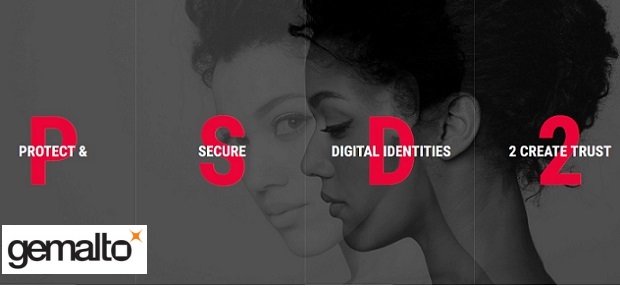
A recent Gemalto poll, 38% of those surveyed would leave their bank if another provider was offering better services or better rates. More, banking customers expect convenience but are not willing to trade away security in the process. According to the poll, 44% of those surveyed would switch banks if their current bank was breached. The onus on protecting personal customer information is clearly on the bank.
In the context of the new European Directive of Payment Services (PSD2), which is coming to force starting with January 13 – 2018, these topics are very sensitive and challenging issues that should be treated carrefully by any bank. They will be adressed by Gemalto at PSD2. New business Models – Fintech Banking Summit, which takes place on 28 and 29 of November at Romanian Banking Institute in Bucharest.
 Gemalto will be represented by Zoltan Szalai (photo), Digital Banking Sales Manager who will speak about Banking Security, Consumer Trust and Regulatory Compliance.
Gemalto will be represented by Zoltan Szalai (photo), Digital Banking Sales Manager who will speak about Banking Security, Consumer Trust and Regulatory Compliance.
Zoltan within Gemalto is responsible for Digital Banking Solutions in the CEE region. He is based in Budapest, Hungary.In addition to his technical background he has gained his eBanking experience by working for several years in an international bank. There he was responsible for front-end solutions such as internet bank, mobile bank, branch servicing developments.
His focus is on implementing user-friendly but at the same time strong authentication solutions for both eBanking and mobile Banking environments.
More business context
New third-party actors like account information service providers (AISPs – which provide consumers with visibility across all their banking accounts via a single app), and payment initiation service providers (PISPs – which offer consumers an easy means of making direct fund transfers for online transactions), are upending the traditional banking landscape.
The bank of tomorrow is the one that not only sees these changes on the horizon, but also adapts to this new environment. Otherwise, customers are more than willing to move on with a financial partner that can provide the services they seek.
Open banking is here – Secure innovative services via Open API
The revised Payment Service Directive (PSD2) fosters the development of innovative services based on open data in the banking payment landscape. In particular, it aims to encourage the creation of alternative internet payment methods across all common types of devices (e.g. computers, tables and mobile phones) by allowing third-party providers equal access to customer account information and transactional approval. PSD2 specifies that consumers have the right to use any third-party provider for their online banking services. As a result, banks are mandated to provide open API interfaces to allow access to payment account information and payment initiation.
Gemalto says: ”Ignoring the future is simply not an option. Progressive banks are those who embrace innovation and enact measures to open up their data for enhanced banking services. By working more closely with third-party actors, financial institutions can better prepare themselves for the market changes and proactively identify areas of research and development.”
Evaluating risk and adapting accordingly
The new European legislation, the revised Payment Service Directive (PSD2), requires that banks adapt security measures to the level of risk involved. As a result, payment service providers (PSPs) have the obligation to operate transaction and risk monitoring in order to assess, detect and prevent risks linked to payments and any access to account operations.
For those transactions identified as low risk, a payment service provider can bypass any strong customer authentication (SCA) requirements. For those transactions that are deemed more high risk such as sudden changes in location or abnormal spending step-up authentication will be required. By evaluating risk and adapting accordingly, banks are able to offer a targeted approach that strikes the right balance between security and user convenience.
Double down on security with 2-factor authentication
People around the world are increasingly conducting their banking operations online from a range of devices, including computers, tablets and mobile phones. Innovative banking services are flourishing, providing more reliable, simple and convenient solutions. And yet, the growth of online and mobile payments has also been accompanied by a dramatic growth of Internet fraud.
Strong Customer Authentication
The revised Payment Service Directive (PSD2) provides banks with a more robust framework to offer the added security that consumers are seeking. The new European regulation mandates Strong Customer Authentication (SCA) procedures for online banking services and for initiating and processing electronic payments
Strong Customer Authentication, as defined in PSD2, means that transactions are authenticated using two or more of the following elements:
. Knowledge: something only the user knows (e.g. password, pin, ID number)
.Ownership: something only the user possesses (e.g. mobile device, token, smart card)
. Inherence: something only the user is (e.g. fingerprint, face or voice recognition)
In the case of remote payments PSD2 also requires the creation of a dynamic link, an additional authentication element that dynamically links the transaction amount and the account number of the payee.
Source: Gemalto
Banking 4.0 – „how was the experience for you”
„So many people are coming here to Bucharest, people that I see and interact on linkedin and now I get the change to meet them in person. It was like being to the Football World Cup but this was the World Cup on linkedin in payments and open banking.”
Many more interesting quotes in the video below: